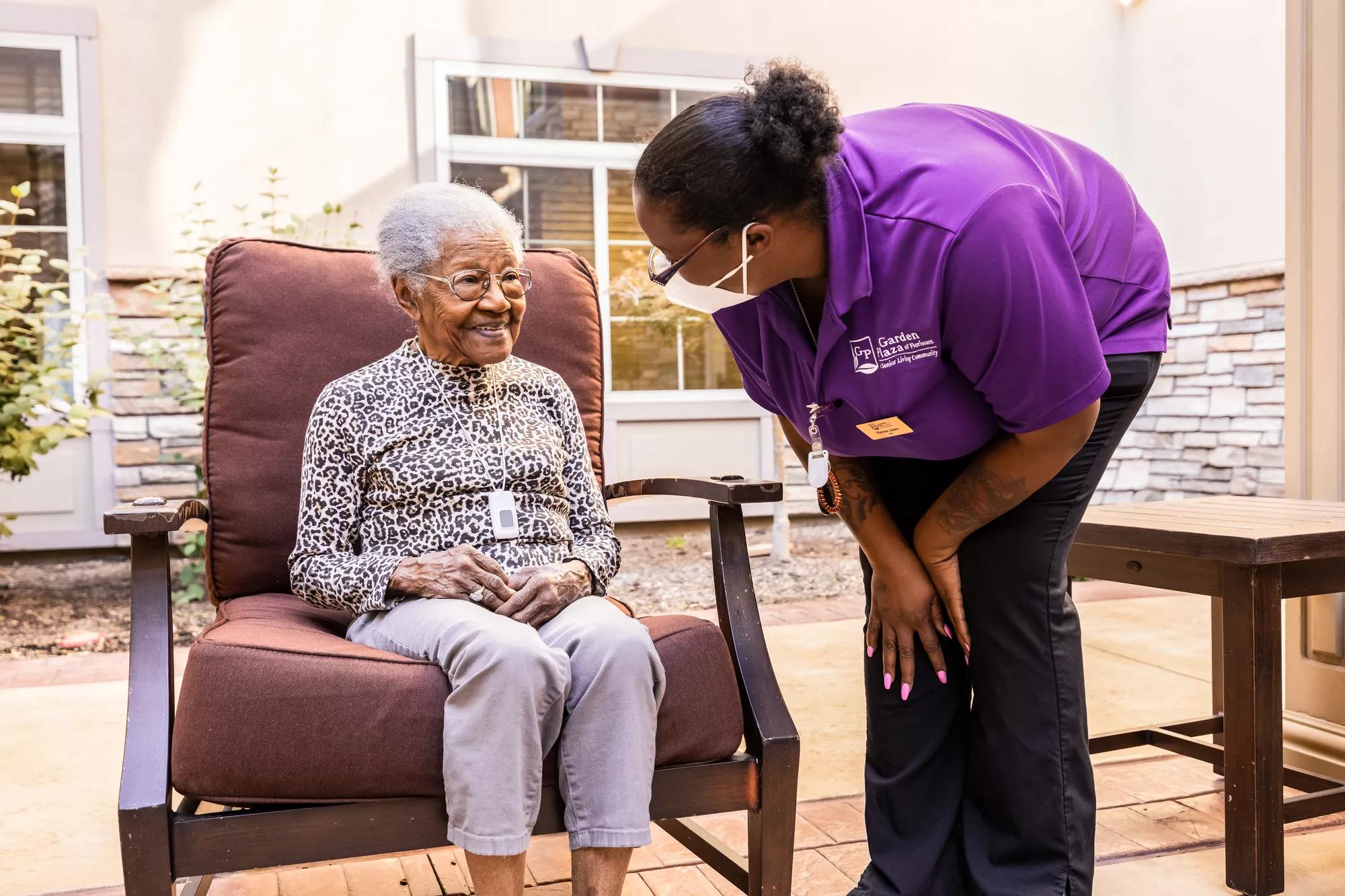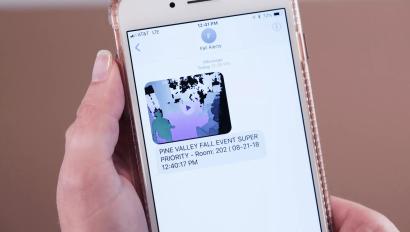Top Four Reasons You Need an Emergency Call System for Assisted Living and Memory Care

Learn the top four reasons why emergency call systems are essential for assisted living and memory care communities.
An emergency call system may not be the first thing people notice about an assisted living or memory care community. However, this safety system is a critical enabler of quality care, operational efficiency, and resident and family satisfaction.
Your emergency call system is arguably one of the most vital investments to manage the safety, security and wellness inside of your community. Even though the industry typically refers to it as “E-Call systems”, many other operational components should be included such as door access and alarms, wander management, fall prevention, environmental monitoring and enhanced location. The days of “E-call” being just pendants and call stations are behind us.
Whether you’re exploring your first emergency call system or evaluating a replacement system, here are four reasons to make this wise investment.
1. Give residents and their families assurance of safety and security
First, an emergency call system makes it easy to coordinate resident check-ins. If a resident fails to check in, a caregiver can follow up proactively to make sure the individual is OK.
Second, a nurse call system gives residents a reliable way to ask for assistance. Residents can keep a wireless device discreetly on their wrist or around their neck. Those wearables — combined with wired and/or wireless call stations in every room/apartment and bathroom — make it incredibly easy for residents to request support.
Further enhance resident safety and security with an emergency call system that provides audio AND visual notifications. These notifications should highlight the key location of the person calling for help, along with information about that resident. Caregivers may first respond via voice to confirm the need and understand what support may be required. If additional help is necessary, having detailed location and resident information enables a faster, more appropriate response.
2. Empower caregivers to be even more efficient and productive
Caregivers within assisted living/memory care communities are almost always on the move; an emergency call system should be “mobile,” too.
Consider that most staff members now use smartphones and mobile apps in their personal lives. Now consider the power of a mobile app version of an emergency call system for assisted living/memory care.
With an intuitive mobile app, like the Arial Mobile App, caregivers can view and respond to alarms with greater speed, efficiency and coordination. The best emergency call mobile apps also enable caregivers to talk and text with each other from within the app. This feature helps reduce or eliminate the need for additional pagers, handheld radios or other mobile devices.
3. Deliver a superior experience to assisted living/memory care residents
Think about the amenities that many communities now offer. These amenities might include beautiful gardens, arts and crafts spaces, party rooms, even coffee shops where residents can gather with each other and their friends and family.
An emergency call system offers residents assurance no matter where they are within a campus. Whether spending time in their apartment or taking advantage of other community spaces, they can request help with the press of a button.
When they have this assurance, they are more likely to feel confident and dignified. And they can enjoy a full and satisfying experience as part of their assisted living/memory care community.
4. Gain insights to help improve efficiency and care quality
When using an emergency call system, every community aspires for short response times and a high level of resident-staff interaction. But an emergency call system can deliver greater value above and beyond these in-the-moment communications and responses. In addition to facilitating real-time communications and care, a modern system can capture data and deliver robust reports and management dashboards.
Data from an emergency call system can be a rich source of insights into residents’ needs and staff’s performance in meeting them. Reports and analyses can also help identify opportunities for additional revenue collection, as well as process and staffing improvements.
Is Arial the right emergency call solution for your community?
At the core, emergency call systems offer the same basic functionality. Residents call for help; staff members see and/or hear the request and then respond. Beyond that, however, emergency call systems vary widely regarding functionality, flexibility and innovation. The most innovative — like the Arial Emergency Call System — have evolved into integrated systems that unify multiple safety and health systems to address a broader range of needs.
If you’re relying on outdated technology, you may be missing opportunities to improve your residents’ experience through better visibility, communications and staff efficiency. You might also be missing out on data-driven insights to guide care planning, staffing and other aspects of community management.
Reach out to explore the Arial solution and how we can help assess and address your emergency call and other safety and security needs.
























